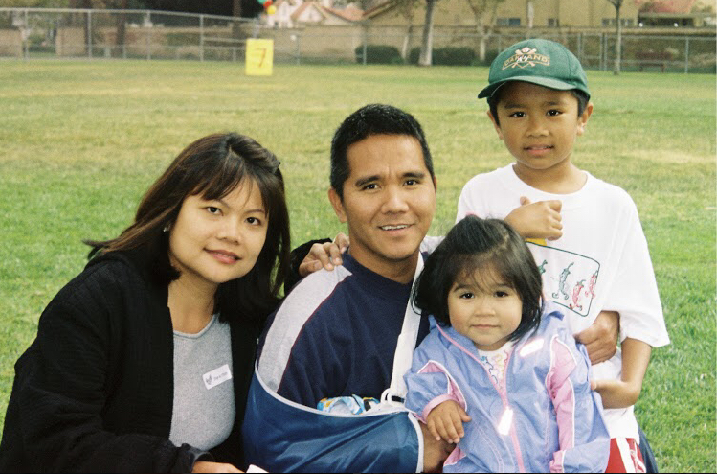Social media appears to be the driving force behind the flow of communication in present day. Rewards of this ever-present lifestyle tool are fame and fortune — two entities many desire. It looks as though the more vulgar, unrealistic and plastic a person appears on their feed, the more likely they are to gain fame and fortune.
The most infamous example may be the Kardashian empire. A mediocre sex tape evolved into a brand that consumers cannot seem to escape from. The Kardashians are not the only ones who achieved this power. Danielle Bregoli, famously known as the “Cash Me Outside Girl,” unintentionally became an internet sensation after uttering a single sentence while appearing on the Dr. Phil show on October 2016. This made the infamous catchphrase “Cash me outside, how bow dat” circulate. Bregoli appeared on the show for her history of stealing credit cards and cars, as well as for her abusive relationship with her mother at the age of 13.
By consuming these images, young fans are advocating for these obscene lifestyles. According to a Pew Research study released in January 2017, 90 percent of 18 to 29 year olds in the United States use social media and almost 60 percent use Instagram, while over 80 percent use Facebook.
Pop culture celebrities who are aware of their popularity on social media are monetizing Hollywood’s toxic culture while their young followers are perpetuating the cycle. Every “like” prolongs the sequence. Celebrities have become billboards — with staged, over-edited photos featured on millions of smartphones, many of which belong to adolescents.
Social media users force-feed themselves these messages.
These famous individuals are not role models. Let’s classify them for what they are — talentless, self-absorbed fools who are out of touch with reality and seek fame for the wrong reasons.
Anyone with a smartphone can claim this power by generating their own brand. If this is the case, why are women such as Malala Yousafzai not awarded the same amount of awareness?
The world was introduced to Yousafzai after a failed murder attempt by the Taliban. Yousafzai is a Pakistani activist for female education. Her peaceful platform might not have gained attention had she not been threatened.
On the other hand, infamous stars are gaining more and more attention.
Rather than being locked behind bars for her criminal behavior, Bregoli was featured in a Kodak Black music video, released a clothing line featuring her signature phrase, amassed over nine million Instagram followers, received tens of thousands of dollars for her appearances and has offered to star in her own reality show. According to TMZ, her reality show is set to air soon although she was recently cited for possession of marijuana. Bregoli is set to become a millionaire by the end of the year — How bow dat?
Environmental engineering sophomore Eva Curiel says society is to blame for their fame and says she follows celebrates on social media.
“I know it would be wrong to share their content,” she says.
Marketing sophomore Andrew Kaitcer, shares Curiel’s view. He recognizes a power imbalance between social media stars and the greater population.
“When we see someone nutty or unconventional, we find it entertaining and therefore do not consider the implications of our normalization of this kind of behavior,” he said. “If the behavior is not destructive, not harming anyone, then it is acceptable.”
Growing up, Kaitcer’s role models were athletes. He said that even though they were not perfect, they strived to create a positive impact on the public — unlike these reality stars.
Public relations sophomore Alexis Henry views the issue differently. She says these stars are useful to companies.
“Brands are closely following their tactics to increase their consumer basis,” she said.
She said she understands it does not always guarantee success — take Pepsi’s recent commercial featuring Kendall Jenner. Henry views Kim Kardashian’s claim to fame different from most. She said Kim Kardashian built an empire on her own after being sexually exploited and has managed to remain relevant.
Accounting freshman Simone Leibowitz said she does not find these individuals harmful to society and believes the worship stems from millennials’ wish to feel special. Because these ordinary people become famous, they are easier to connect with as opposed to actors.
“Our generation believes they have the potential to become famous for doing nothing,” she said.
While these people appear entertaining, they inherently promote unhealthy and unrealistic lifestyles. The American Academy of Facial Plastic and Reconstructive Surgery Inc. published a report January 2017 stating that 56 percent of plastic surgeons report the number of patients under age 30 who opt for cosmetic surgery or injectables rose dramatically in 2016, largely due to social media. 99 percent of AAFPRS members agreed that celebrity influence is largely to blame for the rise.
These people may be considered as guilty pleasures. However, millennials are guilty for stuffing money into the hands of those who do not deserve it. The Kardashians have been known to promote a body-positive image yet continue to go under the knife. If Kim Kardashian truly loved her natural body, why is she in a rush to lose weight following the birth of her children?
Hollywood’s hypocrisy is only growing. Are these the kind of people millennials wish to be remembered by? They have the power to bring attention to issues and influencers who matter, individuals who are changing the world for the better. People who can influence this generation’s lives positively rather than profiting off them. With the touch of a finger, social media enables its users to have the capability to welcome the messages that matter to society — ideas that enhance people’s lives.










